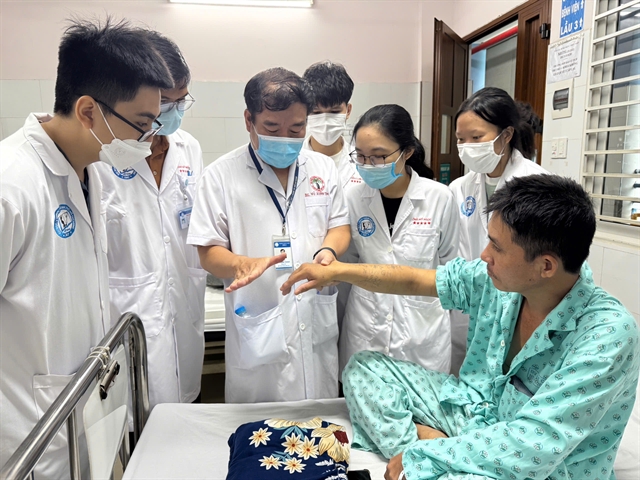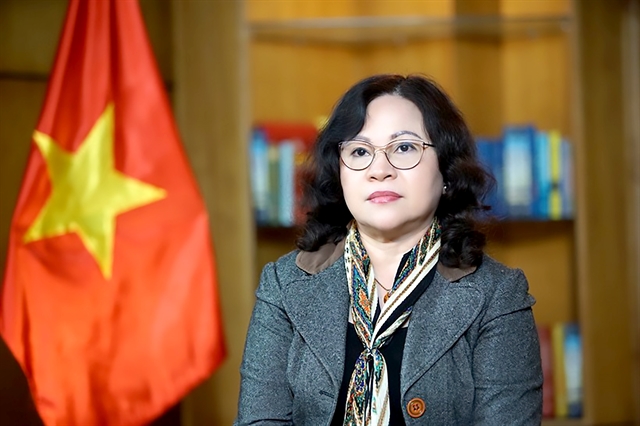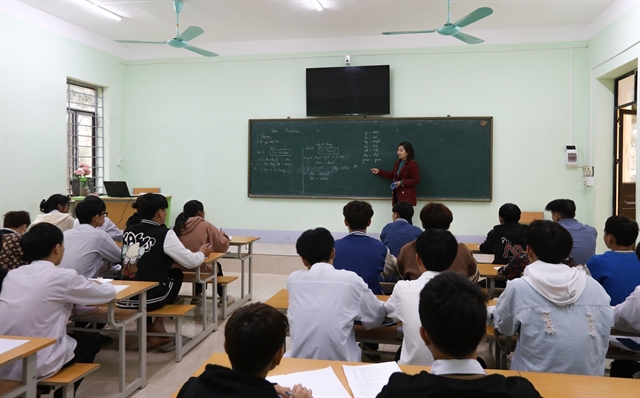 Opinion
Opinion


|
| Deputy Minister of Education and Training Ngô Thị Minh. — Photo giaoducthoidai.vn |
Deputy education and training minister Ngô Thị Minh spoke to Giáo dục & Thời đại (Education & Times) newspaper on the importance of educating the youth on revolutionary ideology, morality, lifestyle and the aspiration to contribute to society.
What is the significance of the programme “Enhancing the education of revolutionary ideology, morality, lifestyle and the aspiration to contribute in youth, adolescents and children” to the education sector?
The implementation of this programme has shown that this is an important mission in youth education, requiring an adequate resource for investment. Education must be considered a key, priority, regular and consistent mission.
On November 11, 2021, Decision No 1895/QĐ-TTg was signed by the Prime Minister, which approved the programme “Enhancing the education of revolutionary ideology, morality, lifestyle and the aspiration to contribute in youth, adolescents and children in the 2021-30 period.”
Project 1501 and Programme 1895 both affirmed the consistent, thorough leadership and direction of the Party and the State, as well as the effective, determined and prompt involvement of the political system, alongside the unity and efforts of ministries, departments, localities, schools, families and the whole society in educating the youth, adolescents and children on revolutionary ideology, morality and lifestyle.
Following the approval of the programme, the Ministry of Education and Training (MoET) has coordinated and worked with the Central Commission for Publicity and Education, and the Central Committee of the Hồ Chí Minh Communist Youth Union (HCYU), to organise a conference with the presence of localities across the country.
This is the launch of the implementation plan for the PM’s decision. Provincial and city People’s Committees also issued their roadmaps with specific tasks and solutions.

|
| Programme 1895 sets the direction for the education of revolutionary ideology, morality, lifestyle and the aspiration to contribute among youth in the 2021-30 period. — VNA/VNS Photo Hoàng Hiếu |
What are the key points of Programme 1895?
Programme 1895 is one of the missions to realise the objective of comprehensive education, a balance between literacy and human development in educational institutions. Human development is achieved through and is the end goal of literacy.
The programme has been studied and evaluated by experts, ministries, departments and especially the Central Youth Union. Its contents closely follow the views of the Party and the State on the education of revolutionary ideology, morality and lifestyle for youth, adolescents and children.
It also inherits and builds on the strengths of the 2015-20 project, as well as the lessons and achievements from the past five years.
The programme is updated with the directions in the resolution of the 13th National Party Congress on “evoking the aspiration to contribute” among youth in the context of Industry 4.0 and international integration.
The MoET and the HCYU Central Committee are the two leaders of the 2015-20 project.
Accompanying the education sector, in the 2022-25 period, the HCYU Central Committee also heads the project “Enhancing the education of morality and lifestyle for students in cyberspace".
Through the grassroots youth union units and Hồ Chí Minh Young Pioneer Organisation, the HCYU and Vietnamese Students Association actively coordinate to host programmes, contests, forums and action campaigns; alongside educating on revolutionary ideology, morality, laws and lifestyle for the youth.
Schools, families and society have close ties to the development of students. How should these three stakeholders coordinate further to increase the community responsibility in the education of morality and ideology for the young generation?
Schools, families and society are the three environments that shape, nurture and strengthen a student’s personality in a comprehensive manner. With the joint efforts of these three stakeholders, students will have the foundation for their self-assertion.
To increase the joint responsibility of these factors, it is necessary to focus on communication and raising the community’s awareness of the family’s roles and responsibilities in student’s education, while also building an educational environment for families to guide and manage their children in learning, training and developing their potential.
Possible activities include extracurricular programmes, support for families, communities and social organisations on the educational methods for students; improving the performance of the parent council; requiring better responsibilities from the local sectors; and acting on the strengths of the schools, families and society in education for students’ comprehensive development.
To achieve the set goals, the programme has identified 10 key tasks and solutions. In the near future, the education sector focus on addressing the existing issues, so that the results of morality and lifestyle education are truly convincing.
The MoET will continue issuing policies, enhancing staff quality, and innovating methods, forms and content for teaching and evaluation, as well as rewards and recognition.
However, the education sector’s work alone could hardly achieve the desired results and meet the inevitable requirements in reality.
Therefore, joint efforts from ministries, departments, local authorities, families and society are needed so that youth, adolescents and children have favourable conditions for comprehensive growth that allow them to be the future leaders of the country. — VNS




